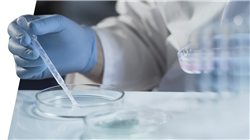University certificate
The world's largest faculty of pharmacy”
Introduction to the Program
This 100% online Postgraduate diploma will provide you with the skills and knowledge necessary to face the challenges in the Clinical and Molecular Management of Infections Caused by Multidrug-Resistant Bacteria"

Due to the rise of antimicrobial resistance, it is essential to adopt integrated approaches, combining advanced molecular diagnostic techniques with antimicrobial stewardship strategies. These measures not only optimize individualized treatment, minimizing the inappropriate use of antibiotics, but also play a crucial role in containing the spread of resistance in clinical and community settings.
This is how this Postgraduate diploma is born, which will delve into the multifaceted causes of bacterial resistance to antibiotics, from the shortage of new antimicrobial agents, to socioeconomic influences and health policies. In doing so, practitioners will examine the global situation of antimicrobial resistance, with up-to-date statistics and regional trend analysis, equipping them with an informed and critical perspective to address this evolving phenomenon.
In addition, the study plan will focus on the management of patients in Intensive Care Units (ICU), emphasizing the accurate diagnosis and effective treatment of common infections caused by multidrug-resistant bacteria. Pharmacists will also acquire specialized skills to implement prevention strategies to reduce the incidence and spread of these critical infections in highly complex hospital environments, contributing to the comprehensive management of antimicrobial resistance in the clinical setting.
Finally, the syllabus will focus on proteomics in Clinical Microbiology, providing advanced knowledge on protein separation and identification techniques, both qualitative and quantitative. In addition, bioinformatics tools for proteomic and genomic analysis will be applied, therefore strengthening the investigation of resistance mechanisms and the development of personalized therapeutic strategies.
The detailed resources will offer graduates an online methodology, allowing them to organize their study schedule according to their personal and professional commitments. In addition, the advanced Relearning system will be incorporated, which facilitates deep understanding of key concepts through strategic repetition. Therefore, they will be able to learn at their own pace and fully master the latest scientific evidence available.
You will be prepared to lead scientific and clinical initiatives that promote progress in the management of infections caused by Multidrug-Resistant Bacteria, through the extensive library of multimedia resources offered by TECH"
This Postgraduate diploma in Clinical and Molecular Management of Infections Caused by Multidrug-Resistant Bacteria contains the most complete and up-to-date scientific program on the market. The most important features include:
- The development of practical cases presented by experts in Microbiology, Medicine and Parasitology
- The graphic, schematic and eminently practical contents with which it is conceived gather scientific and practical information on those disciplines that are indispensable for professional practice
- Practical exercises where the self-assessment process can be carried out to improve learning
- Its special emphasis on innovative methodologies
- Theoretical lessons, questions to the expert, debate forums on controversial topics, and individual reflection assignments
- Content that is accessible from any fixed or portable device with an Internet connection
You will delve into advanced protein separation and identification techniques, both qualitative and quantitative, essential for understanding bacterial resistance at the molecular level. What are you waiting for to enroll?"
The program’s teaching staff includes professionals from the field who contribute their work experience to this educational program, as well as renowned specialists from leading societies and prestigious universities.
The multimedia content, developed with the latest educational technology, will provide the professional with situated and contextual learning, i.e., a simulated environment that will provide immersive education programmed to learn in real situations.
This program is designed around Problem-Based Learning, whereby the professional must try to solve the different professional practice situations that arise during the course. For this purpose, students will be assisted by an innovative interactive video system created by renowned and experienced experts.
You will examine the various causes of antimicrobial resistance, ranging from shortages of new antibiotics to socioeconomic factors and public health policies. With all TECH's quality guarantees!"

You will acquire specialized knowledge on the diagnosis and treatment of the most frequent infections in critical environments, such as the ICU, thanks to the best teaching materials, at the technological and educational forefront"
Why study at TECH?
TECH is the world’s largest online university. With an impressive catalog of more than 14,000 university programs available in 11 languages, it is positioned as a leader in employability, with a 99% job placement rate. In addition, it relies on an enormous faculty of more than 6,000 professors of the highest international renown.

Study at the world's largest online university and guarantee your professional success. The future starts at TECH”
The world’s best online university according to FORBES
The prestigious Forbes magazine, specialized in business and finance, has highlighted TECH as “the world's best online university” This is what they have recently stated in an article in their digital edition in which they echo the success story of this institution, “thanks to the academic offer it provides, the selection of its teaching staff, and an innovative learning method aimed at educating the professionals of the future”
A revolutionary study method, a cutting-edge faculty and a practical focus: the key to TECH's success.
The most complete study plans on the university scene
TECH offers the most complete study plans on the university scene, with syllabuses that cover fundamental concepts and, at the same time, the main scientific advances in their specific scientific areas. In addition, these programs are continuously being updated to guarantee students the academic vanguard and the most in-demand professional skills. In this way, the university's qualifications provide its graduates with a significant advantage to propel their careers to success.
TECH offers the most comprehensive and intensive study plans on the current university scene.
A world-class teaching staff
TECH's teaching staff is made up of more than 6,000 professors with the highest international recognition. Professors, researchers and top executives of multinational companies, including Isaiah Covington, performance coach of the Boston Celtics; Magda Romanska, principal investigator at Harvard MetaLAB; Ignacio Wistumba, chairman of the department of translational molecular pathology at MD Anderson Cancer Center; and D.W. Pine, creative director of TIME magazine, among others.
Internationally renowned experts, specialized in different branches of Health, Technology, Communication and Business, form part of the TECH faculty.
A unique learning method
TECH is the first university to use Relearning in all its programs. It is the best online learning methodology, accredited with international teaching quality certifications, provided by prestigious educational agencies. In addition, this disruptive educational model is complemented with the “Case Method”, thereby setting up a unique online teaching strategy. Innovative teaching resources are also implemented, including detailed videos, infographics and interactive summaries.
TECH combines Relearning and the Case Method in all its university programs to guarantee excellent theoretical and practical learning, studying whenever and wherever you want.
The world's largest online university
TECH is the world’s largest online university. We are the largest educational institution, with the best and widest online educational catalog, one hundred percent online and covering the vast majority of areas of knowledge. We offer a large selection of our own degrees and accredited online undergraduate and postgraduate degrees. In total, more than 14,000 university degrees, in eleven different languages, make us the largest educational largest in the world.
TECH has the world's most extensive catalog of academic and official programs, available in more than 11 languages.
Google Premier Partner
The American technology giant has awarded TECH the Google Google Premier Partner badge. This award, which is only available to 3% of the world's companies, highlights the efficient, flexible and tailored experience that this university provides to students. The recognition as a Google Premier Partner not only accredits the maximum rigor, performance and investment in TECH's digital infrastructures, but also places this university as one of the world's leading technology companies.
Google has positioned TECH in the top 3% of the world's most important technology companies by awarding it its Google Premier Partner badge.
The official online university of the NBA
TECH is the official online university of the NBA. Thanks to our agreement with the biggest league in basketball, we offer our students exclusive university programs, as well as a wide variety of educational resources focused on the business of the league and other areas of the sports industry. Each program is made up of a uniquely designed syllabus and features exceptional guest hosts: professionals with a distinguished sports background who will offer their expertise on the most relevant topics.
TECH has been selected by the NBA, the world's top basketball league, as its official online university.
The top-rated university by its students
Students have positioned TECH as the world's top-rated university on the main review websites, with a highest rating of 4.9 out of 5, obtained from more than 1,000 reviews. These results consolidate TECH as the benchmark university institution at an international level, reflecting the excellence and positive impact of its educational model.” reflecting the excellence and positive impact of its educational model.”
TECH is the world’s top-rated university by its students.
Leaders in employability
TECH has managed to become the leading university in employability. 99% of its students obtain jobs in the academic field they have studied, within one year of completing any of the university's programs. A similar number achieve immediate career enhancement. All this thanks to a study methodology that bases its effectiveness on the acquisition of practical skills, which are absolutely necessary for professional development.
99% of TECH graduates find a job within a year of completing their studies.
Postgraduate Diploma in Clinical and Molecular Management of Infections Caused by Multidrug-Resistant Bacteria
In the dynamic field of pharmacy, the management of infections caused by multidrug-resistant bacteria represents a crucial challenge. The Postgraduate Diploma in Clinical and Molecular Management of Infections Caused by Multidrug-Resistant Bacteria offered by TECH Global University takes a comprehensive approach to this problem, combining clinical and molecular approaches to train healthcare professionals in the fight against these emerging microbiological threats. The online classes of this degree allow participants to access knowledge from anywhere, adapting learning to their schedules and professional needs. This flexible approach not only promotes constant updating, but also fosters the practical application of the knowledge acquired in real healthcare settings. The program covers fundamental aspects of clinical microbiology, delving into the identification, diagnosis and treatment of multidrug-resistant bacterial infections. Through an advanced molecular approach, students will explore the genetic basis of bacterial resistance, as well as the most innovative therapeutic strategies available in current pharmacology.
Specialize in Multidrug-Resistant Bacterial Infections
Do you know why TECH is considered one of the best universities in the world? Because we have a catalog of more than ten thousand academic programs, presence in multiple countries, innovative methodologies, unique academic technology and a highly qualified teaching team; therefore, you cannot miss the opportunity to study with us. In addition, the course provides a thorough understanding of the epidemiology and management of antimicrobial resistance, preparing professionals to lead control and prevention initiatives in their respective work environments. Collaboration with experts in the field and access to cutting-edge technologies ensure that graduates are equipped with the skills necessary to meet the growing challenges posed by these infections in daily clinical practice. Join the world's best digital university and become a leader in the fight against multidrug-resistant bacteria. Your professional future is just a click away.







